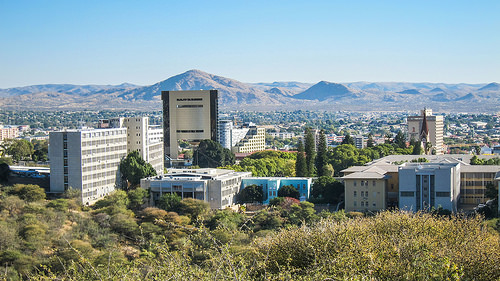March has been a busy month for the FRACTAL project, with a week-long training for the embedded researchers in Cape Town, and the first city learning labs for Maputo and Windhoek taking place. START traveled to Windhoek for the city learning lab, which took place March 14-15.
Over the course of two-days, FRACTAL partners worked with around 30 participants from local and national government, NGOs, the water utility company, donor organizations, and local universities to co-produce a set of burning issues related to climate change, energy, and water in Windhoek.

The first day focused on introducing local participants to the FRACTAL project and brainstorming issues in the city. Through a series of highly interactive activities, a number of burning issues arose related to informal settlements, water security, and renewable energy.
After a presentation from a local climate scientist on the second day, the FRACTAL team experimented with a new approach to communicating the potential future impacts of climate change by providing three narrative scenarios of what the climate could look like in 20 years and how this may affect various sectors in the city of Windhoek.
Participants broke into groups to discuss the narratives, including critiquing them, evaluating their usefulness, and describing how the potential impacts might affect their own sectors. The afternoon was spent collaboratively mapping the institutional environment for the two priority burning issues identified (informal settlements and water security), and thinking about how everyone could contribute to FRACTAL.
In the closing reflections, everyone said they had enjoyed the learning lab, especially its novel approaches for brainstorming and facilitation. Now the hard work of maintaining the energy and engagement with FRACTAL begins!


